To mulch, or not to mulch, that is the question.
m_lorne
15 years ago
Featured Answer
Sort by:Oldest
Comments (52)
digdirt2
15 years agoleira
15 years agoRelated Discussions
Playground mulch vs. cedar mulch vs.pine mulch
Comments (5)Playground mulch is actually designed to standards that have mostly to do with impact (and liability to those who specify it). The knock on cedar mulch, as I remember it, is that it is very fibery and can give you little tiny splinters if you contact it a lot (refering to western red cedar). Pine mulch is a widely varying thing as there is no standard, there are lots of species of pine, and then there is the whole thing between recycled wood, wood chips, and actual bark (won't even go into dye).... and in the south they use pine needles as mulch (usually called pine straw). Pine mulch can mean a lot of different things. My mulch of choice is finely ground pine BARK. The problem is that it is more often than not "cut" with other crap (recycled wood or wood chips) these days and you wind up with a bunck of wood chips on top after about a month to the weather....See Moreto mulch or not to mulch
Comments (3)What rita says.. when I have time and energy, its usually compost I use for mulch the most.. but Ive used pine needles, hay, grass clippings and chipped up wood. If nothing else.. get some bales of hay and lay it on thick. Silverkelt...See MoreTo Mulch, or Not To Mulch???
Comments (5)Mulch seems to be a frequent topic, but I always find myself looking at it and wondering why? I found that by spending a few minutes a day weeding while my plants were starting out I quickly got to the point where weeds were completely shaded out by the dense growth of desired plants in my SFG. I had to pull the occasional weed around the base of the tomatoes, but never enough work to deal with the hassle I perceive as being associated with mulch and mulching. If I use grass clippings I would be introducing all sorts of weed seeds. If I use almost anything else I would have to remove it when the time came to pull up my plant, mix in fresh compost, and plant again. Unless you are in an area with a different climate from mine, where you really need the mulch to help keep moisture in the soil (moisture which must have to fight its way through that mulch in the first place) it just seems at odds with the whole SFG method, your plants should be close enough together to be their own mulch....See Moremulch mulch mulch mulch mulch...
Comments (2)Are you kidding me? I'm so dirty right now I don't know if I'll ever get clean! I agree, you can never have enough mulch in Texas. My kids think I'm the biggest freak - nothing makes me happier than free mulch and good compost!...See Moregardengal48 (PNW Z8/9)
15 years agom_lorne
15 years agoKimmsr
15 years agokqcrna
15 years agoLloyd
15 years agoval_s
15 years agonorth53 Z2b MB
15 years agotcstoehr
15 years agogjcore
15 years agoDan _Staley (5b Sunset 2B AHS 7)
15 years agodchall_san_antonio
15 years agoDan _Staley (5b Sunset 2B AHS 7)
15 years agoKimmsr
15 years agoDan _Staley (5b Sunset 2B AHS 7)
15 years agoKarchita
15 years agoKimmsr
15 years agokqcrna
15 years agoDan _Staley (5b Sunset 2B AHS 7)
15 years agogardengal48 (PNW Z8/9)
15 years agopiedmontnc
15 years agokayhh
15 years agoLloyd
15 years agokqcrna
15 years agomaifleur01
15 years agoKarchita
15 years agogardengal48 (PNW Z8/9)
15 years agoDan _Staley (5b Sunset 2B AHS 7)
15 years agolynxe
15 years agolynxe
15 years agoannpat
15 years agolynxe
15 years agodchall_san_antonio
15 years agodchall_san_antonio
15 years agoDan _Staley (5b Sunset 2B AHS 7)
15 years agobpgreen
15 years agoLloyd
15 years agoDan _Staley (5b Sunset 2B AHS 7)
15 years agoDan _Staley (5b Sunset 2B AHS 7)
15 years agoLloyd
15 years agorj_hythloday
15 years agoDan _Staley (5b Sunset 2B AHS 7)
15 years agoLloyd
15 years agogardengal48 (PNW Z8/9)
15 years agoDan _Staley (5b Sunset 2B AHS 7)
15 years agocyrus_gardner
15 years agoKimmsr
15 years agoDan _Staley (5b Sunset 2B AHS 7)
15 years ago
Related Stories

GARDENING GUIDESNew Ways to Think About All That Mulch in the Garden
Before you go making a mountain out of a mulch hill, learn the facts about what your plants and soil really want
Full Story
GARDENING GUIDESHow to Pick a Mulch — and Why Your Soil Wants It
There's more to topdressing than shredded wood. Learn about mulch types, costs and design considerations here
Full Story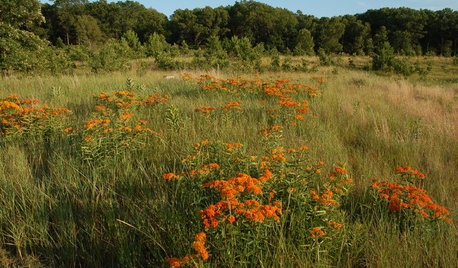
GARDENING GUIDESThe Art of Green Mulch
You can design a natural garden that doesn’t rely on covering your soil with wood and bark mulch
Full Story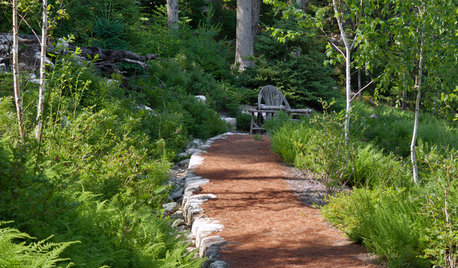
GARDENING GUIDES5 Things to Know About Weeding and Mulching Your Native Garden
What’s the best time to pull weeds? How thick should the mulch be? Here’s the scoop for a healthy landscape
Full Story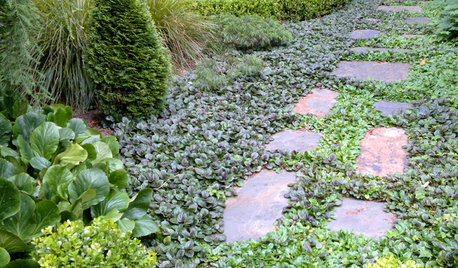
GROUND COVERSGround Force: 10 Top Ground Covers for Your Garden
Protect your soil from weeds and drought this summer with a living mulch of ground covers
Full Story
GARDENING GUIDESGarden Myths to Debunk as You Dig This Fall and Rest Over Winter
Termites hate wood mulch, don’t amend soil for trees, avoid gravel in planters — and more nuggets of garden wisdom
Full Story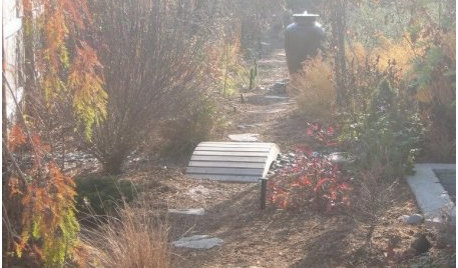
GARDENING GUIDESCentral Plains Gardener's November Checklist
Mulching, seeding, feeding — several small tasks to ensure a winter of activity, and a good spring start.
Full Story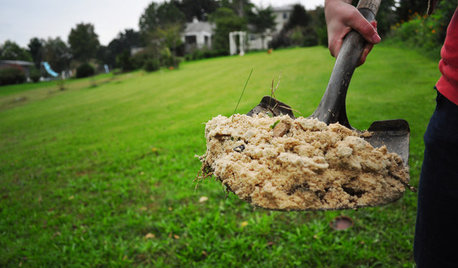
GARDENING AND LANDSCAPINGGarden Musts for March
Some toil in the soil this month will help ensure a blooming garden come summer, so dig out your shovel and bring on the mulch
Full Story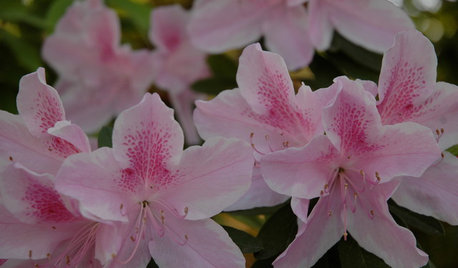
GARDENING GUIDESTexas Gardener's November Checklist
Planting and protecting are top priorities in the garden this month, so master the mulch and get those trees and shrubs in the ground
Full Story0
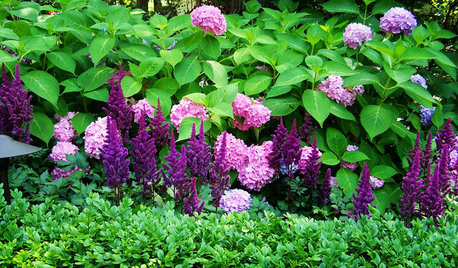
GARDENING GUIDESSoutheast Gardener's May Checklist
Bask in the blooms and mind your mulch this month; summer means lots to savor and lots to do in the garden
Full StorySponsored
Columbus Area's Luxury Design Build Firm | 17x Best of Houzz Winner!




Lloyd